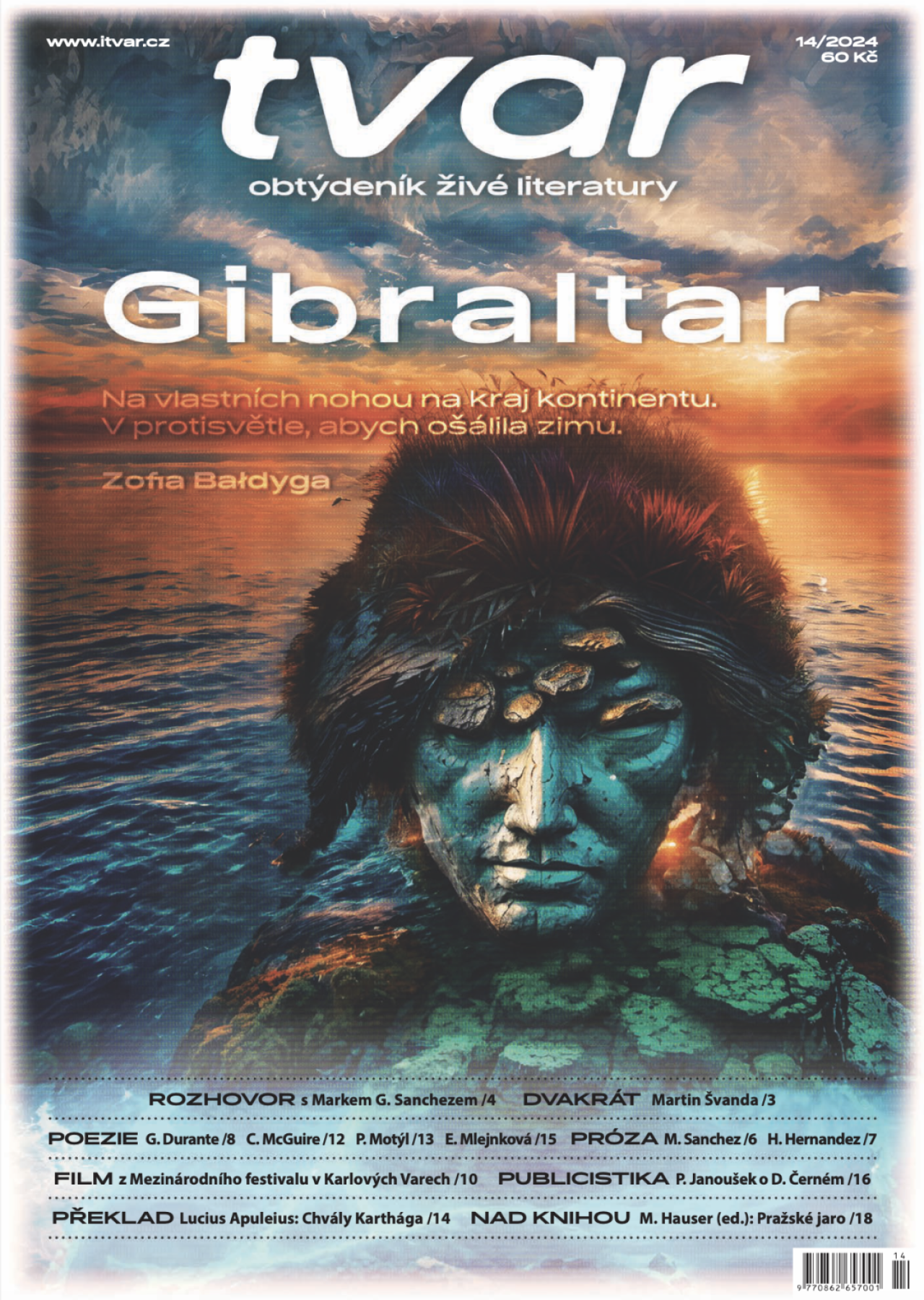Gibraltarian Writers Featured In Czech Literary Journal

Three Gibraltarian writers have had their work featured in the fortnightly Czech literary magazine Tvar.
Texts by Mark Sanchez, Humbert Hernandez and Giordano Durante appear in translation in the latest issue of the journal which focuses on Gibraltar.
Tvar, a leading literary journal based in Prague, was founded in 1990 immediately after the fall of communism. Its aim is to “follow and promote contemporary literature, both Czech and international.”
The issue contains an interview with Mark Sanchez (followed by an extract from his novel Gooseman), a short story called Bajo la alfombra by Humbert Hernandez and seven poems by Giordano Durante drawn from his two collections ‘West’ and 'Nostalgia Elsewhere.’
The magazine also includes a book review of the ‘Borders and Boundaries’ issue published by Patuka Press last year.
Dr Jan M. Heller, Editor-in-chief at Tvar, explained that the idea of publishing Gibraltarian literature came to him after he saw the Gibraltar stand at the London Book Fair.
He said: “When exploring world literature, I've always been particularly interested in places on the borders, places that are somehow special and — why not — even peculiar. When I saw the Gibraltar stand at the London Book Fair, I realised that I had no idea that this place on the edge of Europe had its own literature. It was immediately clear that I wanted to know as much as possible about it and make it available to our readers.”
When it came to selecting texts for translation, Dr Heller said he wanted to “capture Gibraltar's literature in as much diversity as possible.”
Dr Heller continued: “We present this literature as confident and colourful. Those are probably the two adjectives that I think are most appropriate for it.”
Regarding the Patuka Press Borders and Boundaries issue, Dr Heller said he was “struck by the quality” of some of the texts: “This is especially true of the poetry, whose expressive richness ranges from meditations on Gibraltar's past and present in a calm, formally uncomplicated but bittersweetly realistic tone, through minimalist poems written in a dance-like rhythm, to cruelly factual expression in an almost slam rhythm. In the case of prose, I particularly appreciated the use of the techniques of various genres, even popular ones, in dealing with historical or mythological themes growing out of Gibraltar’s soil."
Dr Heller ended by reflecting on the challenges of translating these often linguistically hybrid texts into the Czech language.
He said: “I must repeat the word colourful once again. The cultural realities of a place with a hybrid identity, the linguistic references — all this perhaps constitutes the uniqueness of the place and its literature. Although the main themes of this literature, such as love, loneliness, the search for oneself, or the social critique of the struggle with the authorities, unemployment, corruption or crime — all of which I have read about there — are similar everywhere in the world, here they are encoded in a complex linguistic panorama and in a captivating seaside light.”
The issue is also online and be accessed here: https://itvar.cz/obtydenik/2024/14
Latest News
- GSD Accuses Government Of Delaying 2018/19 Principal Auditor’s Report
- The Budget 2025 – Minister Nigel Feetham's Address
- Chamber Responds to the 2025 Budget
- TG Welcomes Budget Surplus But Criticises “Underinvestment” And “Lack of Affordability Measures”
- The Budget 2025 – Minister Joe Bossano's Address
- 2025 Walks Through History Summer Programme
- Minister Cortes Meets Minister Morgan
- Gibraltar NASUWT Welcomes Creation Of 49 New Permanent Teaching Posts
- Charity Cardboard Boat Race To Take Place This August
- The Budget 2025 – Minister John Cortes' Statement



